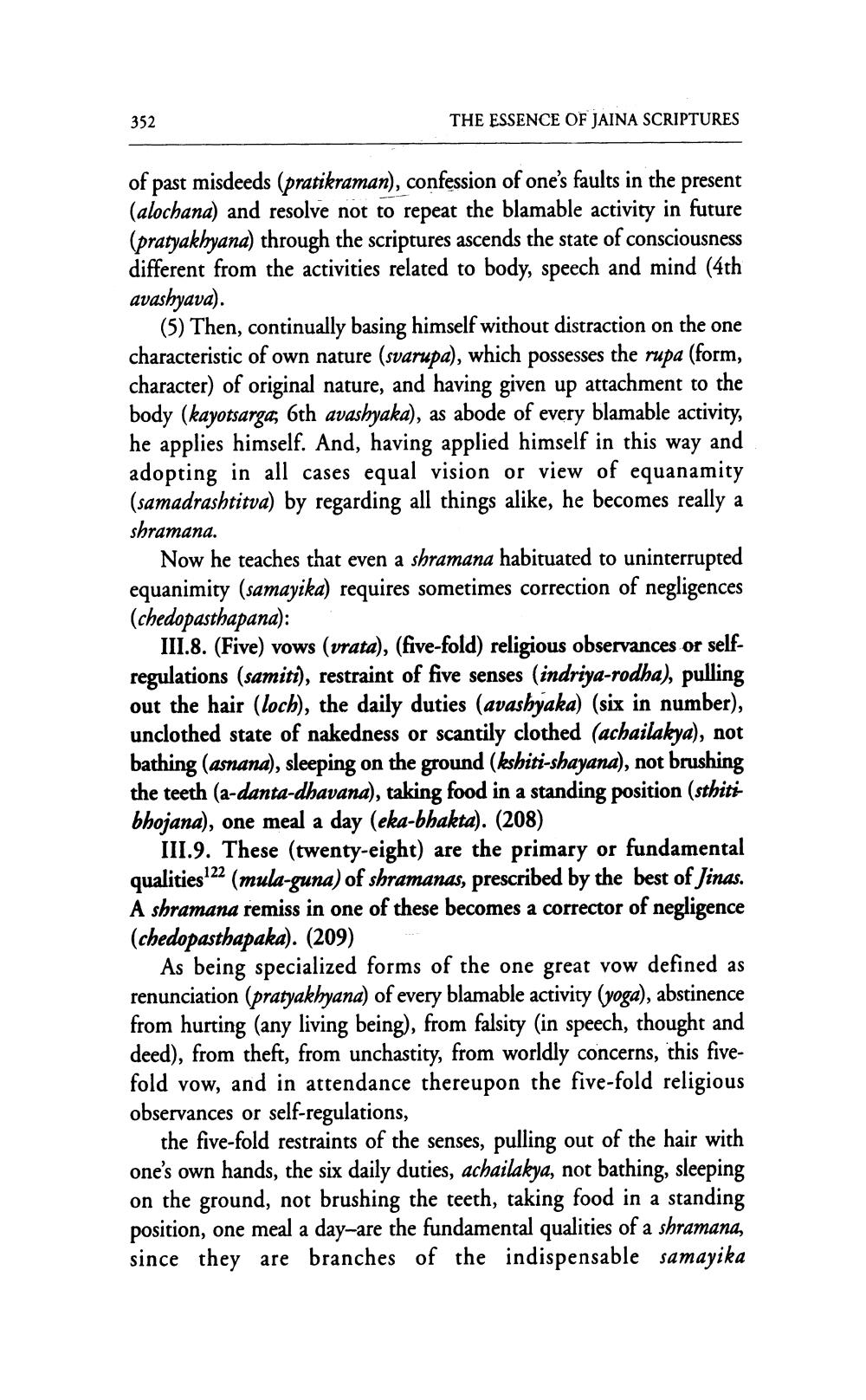________________
352
THE ESSENCE OF JAINA SCRIPTURES
of past misdeeds (pratikraman), confession of one's faults in the present (alochana) and resolve not to repeat the blamable activity in future (pratyakhyana) through the scriptures ascends the state of consciousness different from the activities related to body, speech and mind (4th avashyava).
(5) Then, continually basing himself without distraction on the one characteristic of own nature (svarupa), which possesses the rupa (form, character) of original nature, and having given up attachment to the body (kayotsarga, 6th avashyaka), as abode of every blamable activity, he applies himself. And, having applied himself in this way and adopting in all cases equal vision or view of equanamity (samadrashtitva) by regarding all things alike, he becomes really a shramana.
Now he teaches that even a shramana habituated to uninterrupted equanimity (samayika) requires sometimes correction of negligences (chedopasthapana):
III.8. (Five) vows (vrata), (five-fold) religious observances or selfregulations (samiti), restraint of five senses (indriya-rodha), pulling out the hair (loch), the daily duties (avashyaka) (six in number), unclothed state of nakedness or scantily clothed (achailakya), not bathing (asnana), sleeping on the ground (kshiti-shayana), not brushing the teeth (a-danta-dhavana), taking food in a standing position (sthitibhojana), one meal a day (eka-bhakta). (208)
III.9. These (twenty-eight) are the primary or fundamental qualities"22 (mula-guna) of shramanas, prescribed by the best of Jinas. A shramana remiss in one of these becomes a corrector of negligence (chedopasthapaka). (209)
As being specialized forms of the one great vow defined as renunciation (pratyakhyana) of every blamable activity (yoga), abstinence from hurting (any living being), from falsity (in speech, thought and deed), from theft, from unchastity, from worldly concerns, this fivefold vow, and in attendance thereupon the five-fold religious observances or self-regulations,
the five-fold restraints of the senses, pulling out of the hair with one's own hands, the six daily duties, achailakya, not bathing, sleeping on the ground, not brushing the teeth, taking food in a standing position, one meal a day-are the fundamental qualities of a shramana, since they are branches of the indispensable samayika




